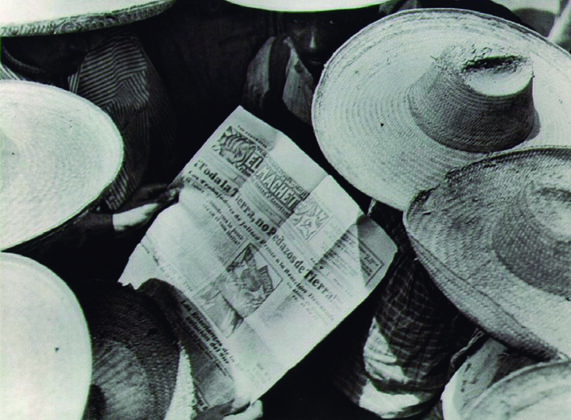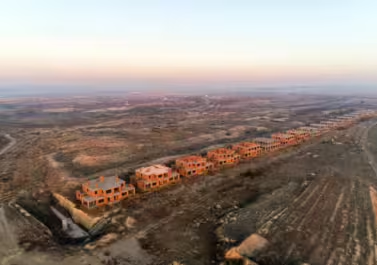The comments from an organic farm worker below refer to our book ‘Class Power on Zero-Hours’. We love these reflections, as they are an expression of the productive knowledge and creative wealth that exists in the working class today – both in terms of how to organise the class war and how to take-over and transform the means of production. Get involved in the debate!
Dear AngryWorkers!
Finally I get around to actually write you the promised feedback to your book. The only aspects I disagree with, is some aspects about agriculture/horticulture, which relate mostly to potentials of organic production and technological improvements. While reading your book, my impression was, that you definitely did your numbers and research into agriculture/horticulture/primary production and drew based on the researched numbers and evidence logical reasonable conclusions from it. So yes well done, however all those things make sense a bit differently when looked at from an farmworkers perspective. Which is what I am trying to show below, but I apologize already, the more I try to make this a structured e-mail the more it gets out of hand. Sorry.
About me: I worked different odd jobs and did a bachelor-degree in sociology and environmental science. After that I am well informed about global troubles with capitalism and environmental destruction in manyfold dimensions. However I found out this way that university is just a fucked up habitat for spoiled upper class kids, and nothing much happens to challenge the status quo, although a whole lot of the lectures and the contents in my subjects were actually pointing at the necessity to shake things up. Weird.
After that experience I was thinking, if I actually have to wage work, to make a living, then at least I would like to work something that makes sense to do socially and ecologically and is practical. Some work which allows to learn useful stuff, that still makes sense in anti-capitalist settings.
So in early 2018 I stumbled into organic farm work by accident and I am working in the sector since then. First as a farmhand working the veggie fields together with my seasonal colleagues from Poland and Croatia (and a few Germans), but as well doing delivery drives and helping on the farms weekly local market stall was part of my job back then. And as things went well I started an apprenticeship (veggie horticulturist).
For me the season is over for now. And so I have time to write properly, while I am planning to join a lefty-veggie-growing-collective soonish. Hard to explain. But it is organic, small scale and radically democratically organized without bosses and a CSA (community-supported-agriculture) scheme. So with all the things I can say on organic agriculture/horticulture I can only speak about my work experience in the sector in Germany, and information I picked up through my work or by reading stuff, or workplaces visited through the apprenticeship training course.
Of course I understand that while working in a ready-meal factory, it does not make any difference if some of the processed ingredients or produced products are tagged «organic» or not on the package. If there is supposed to be anything like a post-capitalist society, I guess it must organize its food production entirely different. And organic modes in farming/horticulture are just one little piece in the puzzle. However it makes sense to investigate further into the sector. And taking on the impulses from your book I wonder how to actually organize as Angry Farm Workers?
- Organic methods
In the agriculture/horticulture sector there is a split between conventional and organic producers. First organic farmers came up already with the first emergence of fossil fuel based fertilisers in the late 19th century. For different reasons the organic growers were in opposition to those. Currently about 10% of producers in Germany, work certified organic, with about 7% share on total production. However specifically it varies a lot from carrots (way over 20% to pork less than 1%).
Most important in those developments towards conventional-industrial agriculture which started back then, was the invention of the Haber-Bosch-process (named after its inventors). This process allows with a lot of heat and energy (oil) to bind the nitrogen from the air into all sorts of substances. This came in handy to produce dynamite and all sorts of explosives for World War I and World War II. So when that was over. Suddenly there was huge nitrogen-production capacities which Capital had to find some kind of purpose for, to not go bankrupt on them.
So capital came up with those oil based fertilisers and as well herbicides, pesticides etc… A whole lot of heavy industries flipped around from arms and weapons to agro-chemistry in Europe and North America (Not sure in detail about this in the Soviet Union? GDR had regular shortages in conventional agro-chemistry, so they actually accomplished some of the groundwork in agricultural research into alternative modes of production– somehow fertilisers were not their strongest capacities, while other farming aspects got super industrialised quickly in the Eastern Bloc).
From the 1960s on the whole agrochemical stuff was globally marketed as «Green Revolution» and supposedly necessary to feed a growing global population and the like. However all of those arguments have been debunked and refuted globally. No matter if peasants and farmworkers, activists or academics in peasant studies and social geography. There is lots of stuff published on this (If you are interested I could dig up some texts from my old uni materials). An interesting point of entry here is stuff from Vandana Shiva or the international Via Campesina). But roughly I still have in mind that today globally, the conventional-industrial food production claims about 70% of the farmland but is feeding only 30% of the worlds population. The whole topic Marx illustrated as the original accumulation it was never completed, it is still happening full steam globally.
Practically there is National, EU and international regulations on what exactly is allowed in organic food production. Some things differ regionally (as does the available farm land, soil fertility, rainfalls, etc) but some core bits are always the same:
- No use of petroleum based fertilisers or agro-chemistry (esp. all the nasty toxic stuff that stays around for a long time in the actual crop and in nature and ends up in drinking-water reservoirs or accumulates in the ground and can have all sorts of long term impacts on nature or human health)
- Diverse crop rotation to not exhaust the soil too much from always growing the same in huge monocultures
- Aiming for a somewhat closed nutrient cycle within a farm system → find reasonable modes to deal with composts, manure etc.
- Working more with the seasons – so there will be no tomatoes or strawberries for Christmas, rather rotate with winter foods (kale, winter lettuces, beetroots…) However you can try to stretch the seasons a lot with different measures, for exp.: covering fields with sheets, so they heat up earlier, keep the moisture for longer…
- Usually heating greenhouses with fossil fuels is not allowed (some exceptions exist, complicated to explain)
- Often organic producers refrain from so called hybrid-seeds or GMO- seeds, but prefer a huge diversity of older different varieties (since a few years new varieties are bred from the old one, super important aspect, but hard to explain in short). Those old seeds are basically open-source use, so one does not get dependent on big industry so much. The advantage is, that the older varieties are much more diverse, taste better, are adapted to local conditions (typical soils, or amount of rainfall), more resilient against pests and diseases (less use of pesticides) – But yeah often they have a lower annual yield – however if you take into account the overall effort and toil and energy to make them grow well, the old varieties get away better than standardised big-industry seeds, which are mostly bred on high yields with based on generous mineral-nitrogen fertilisers. Just to give you an example: In Germanys supermarkets you can buy about five different kinds of apple: Pink Lady, Granny Smith, Elstar, Golden Delicious and Topaz. Over centuries people cultivated in Germany more than 1000 different varieties, many of them with a very local range. All with different qualities and all with different purposes: To eat right away, or to store for almost a year (without fridges), to make juice, Cider or heavy booze, for drying or baking and so on and on and on. Organic growers in Germany cultivate now a few dozen different varieties of apples commercially. While the most grown and standardised apple globally is Pink Lady and tastes exactly the same from Europe to Australia… This is more or less the situation with pretty much all domesticated plants. Capitalism increased the use of land and its annual cash crops but diversity and healthiness of diets went down a lot over the course of centuries, while staple bulk calories increased (wheat, sugarcane, potatoes, soy, corn)
In consequence of those measures mentioned above, organic modes of food production come along with a higher biodiversity and way less toxic substances ending up in the environment, while leaving more niches for wildlife of all sorts.
Please do not get me wrong. I am definitely not romanticising rural living or farm work and all sorts of other stuff that goes wrong in the sector. And of course the idea is not to «go back» to how farming was done long ago. The question for a social and ecological post-capitalist society is how to make use of certain technologies and how to organise the work in a way it is not terrible as it is now, for many land workers globally:
For example if a conventional farmer just stops using pesticides, of course a whole lot of weeds while pop up and make the actual crop grow bad and small. So and organic alternative is weeding. In hobby gardening this is manual work. In bigger scales one can use all sorts of different fancy tractor-tools. This requires different skills of the (organic)-farmer worker and a good sense of observation, but is for sure not more exhausting than driving a pesticide-spraying-tractor. As well the number of weeds can be a lot in the long term, if they are weeded always right away when still small – so they do not get around much to flower and multiply and the cultivated fields will get a littler clearer every year. Another trick is the so called false-bed or working with different mulching materials… From the market garden scene come manual tools like the so called broad fork which allows an easier and faster efficient manual work process in small commercial scales, without expensive mortgage based investment in heavy machinery :-)… Sorry I m getting lost in detail again.
In your book you mention this region in England with all the super productive greenhouses. Sure such things are possible in conventional food production. The catch here is the incredibly high input of external energies (fossil fuels, fossil fertilisers, pesticides, heating) Oh and I forgot organic farming requires that plants actually grow in soil. And that is the point here: Conventional greenhouses often use nutritional liquids (not sure with the word in English), therefore the plants root sort of just get infusion without growing in real soil. That is sort of like feeding a human with muesli bars and protein shakes only. The human will survive and even grow muscles, but somehow healthy nutrition requires some more stuff – which still is not understood completely in all the details scientifically. The whole topic of soil and symbiotic interaction between plant-roots and microorganisms and how all sorts of nutrient reserves in the soil are mobilized is a vast and endless topic. Some plants actually give nutrients into soil, rather than taking much. But somehow it has an impact on the actual nutritional values of the crop and the longterm fertility of soil.
Permaculture inspired I would rather suggest in case one day there is a workers takeover of such huge conventional greenhouse production sites how to use them. One option is to have more complex crop rotations in them instead of just growing nonstop tomatoes and cucumbers in them. Another one could be to actually give the soil a break and every few years use the greenhouse as a chicken pen. So the chickens dig up the soil and shit every where and that way enrich the soil… there is countless options. The catch here is, that it will require one way or the other more human labor, so to me the challenge is to organise those tasks in a way they do not make the workers stupid, but rather have several different tasks over the work day or have a bigger number of people working part-time in the sector.
Of course I am sure there is a whole lot of fraud and betrayal with labelling food «organic» which is of conventional origin, that is just capitalism and not the fault of actual organic producers. Of course and the organic producers are not a utopian happy go lucky bubble, but as much as anyone else part of the capitalist system, which often makes them as anyone else bend to unequal market forces and power relations under capital – with the capital power lying in food processing, logistics and food retail (everything you researched in this regard sounded absolutely logical and goes along with my work experiences in the sector). So in short there is all sorts of everyday conflicts and compromises which have weird outcomes in organic production – like all the plastic packaging as under capitalist conditions this is the cheapest way to do logistics – taking into account the externalised costs of all the plastic rubbish it is not anymore. Or the issue of competition of scale, which makes bigger sites outcompeting smaller ones and so suddenly transporting stuff over long distances seems (capitalistically) more efficient than growing regionally, which would reduce a whole lot of greenhouse gas emissions in the transport sector.
So to get this topic closed, I think it is very clear that in capitalism most of primary food production is organized in a terrible mode, that destroys its very own foundations: Soil fertility, clean water and the skills and knowledge of a farmers and land workers who still know different modes of production.
Towards the end of your book, you mention that in case of an uprising and temporary isolation of the UK from global supply/production chains. UK would have trouble getting fruits and veggies, but meat and dairy would still be fine. I do not think so. European meat and dairy production depends heavily on massive imports of fodder, mostly soy from South America. So I guess this would not be possible anymore, but rather it would be useful to figure out a more diversified middle-scale food production – This means for example combining animals in smart ways with veggie and grain growing. That way, it is less of a monoculture, but overall the food production becomes more productive than doing only one thing in very big. In that way it would get possible to figure out how much fodder for animals can be grown for animals on a particular land base and adapt the number of animals to it. If this combined well with veggies or grains, there should be leftover manure to bring to the fields and a rotative system where possible (of course no veggies on steep hillsides, rather just grazing there) would allow to keep or even increase soil fertility and reduce the carbon emissions from agriculture a lot. In some systems some organic-geeks by now figure out stuff they call «climate-positive agriculture» so modes of production that actually bind more carbon back into the soil, then the system emits.
I just drop a few buzzwords here about the groovy stuff from the niches, the internet is full of that stuff, which of course will probably need a serious social unrest to have a chance to become a viable alternative to agro-capitalism:
- Market Gardening (Small scale, but commercially successful with low capital investments), permaculture (many inspiring ideas, usually more on a hobby level, a lot of well-off blokes (mostly guys) talking in a know-it-all way, while they actually make a living of giving courses about and not the farming/gardening itself – still some good ideas
- Agroforestry – modes to combine grains, and veggies with animals and perennial food plants, like fruit and nut trees, a lot of effort is put into developing bigger scale systems which are viable for middle sized commercial farms
- Key-line design – trying to make most of a certain landscape, getting drainage and water catchments right. If that is installed once properly, it will safe a lot of toil in the long run.
- Transfer- and InSitu-mulching systems – always keeping the ground covered to reduce evaporation
- Mobile chicken pens – so it is easy to move the animals over the field, in that way they can fertilize the farmland efficiently without overgrazing it – great to combine with orchards.
This list can go for ages, but I guess it is already way to much anyways 🙂
Commercial capitalist organic agriculture/food production has still all the issues of capitalist productions, however some ecological aspects are definitely way less bad. Hard to summarise, maybe it is easier to actually visit organic producers and get a tour of the farm and ask one million questions. How about I invite you for doing so?
There is two very famous CSA projects in SouthGermany (and 200 less famous one all over the country) 1.) The GartenCoop Freiburg and 2.) Kartoffelkombinat in Munich (with a few thousand members),
- Work conditions – how to get AngryFarmworkers together?
Ok, are you still with me? Great! In this section I would like to put down a few thoughts on the social context and work conditions especially in organic production. As that is what I know and where I wonder how to organise as workers.
First thinking about the experiences you wrote about in your book, I wonder how to get started in farming, as most starting points to me seem to me even worse than your book.
- The big numbers of seasonal workers, which often change workplaces are a point I have no idea how to tackle, of course many work places are crap so workers rather try to get into different jobs and leave the sector. Understandable.
- Organic farms grow more different veggies than conventional, so that makes the work day much more bearable: My workplace grows 40 different kinds of veggies, a conventional farm of that size would have 5 different one max. → Of course workdays are still long, exhausting, and can be tedious, but it is a difference if you pick radishes everyday for weeks, or everyday a few hours and still get to do a few other things in the course of the day.
- Farms/orchards are in the rural areas, and work places seem to be very different, much less similarities than from one factory to the next.
- Different mechanisation level of the work places, even within one farm. Example: Where I’ve been working, there is about 8 different tractors in use, the oldest one from the 1950s, the newest one with semi-automatic GPS-supported driving. We have got all sorts of planting-machines, still certain plants are still better off, by hand-planting.
- Usually the permanent staff are Germans, which have somewhat leading positions more autonomous duties – so in doubt they rather obey the bosses. Still most of them would be financially better of, working in different sectors, with way less hours. There is a weird sense of idealism and commitment, to fieldwork, and I wonder if there lies potential to fight, as most workplaces rest on the critical knowledge and skills of this hard-to-replace-bunch of people.
With the workplaces vary a whole lot the condition. My workplace has been honestly the best employer I have ever had. All regulations and tariffs are obeyed by the owners without any discussion. When the union, came up with a new tariff, it was not even worth mentioning, the hourly rates on the payslips simply went up and the money went on time into our bank accounts. The boss himself, with pretty much everything, was always the first in line in getting things done. He actually learnt Polish, to communicate properly with everybody. – So in the end, there was almost no seasonal, as all my international colleagues, were actually as well long-term permanent staff. The only difference was, that they took regularly longer breaks to be in Poland with their families. Many of them keep coming back since more then 10 years. However it is very clear, that this was/is absolutely unique, and all other farms I’ve heard off, are either much worse or basically run by a family and maybe 2 extra employees.
At last another special thing with the sector is a change in the composition of the work force. Still a whole lot of workers come from farmers-families, so they do not have a class war-mindset, as they have the prospect, to just work a few years in different places to gather experience until they take over their parents business.
It used to be mostly Polish people doing the seasonal work in German farms. This shifted, as the standard of living in Poland went up, and as well many Polish people rather find work in Germany in different sectors: truck driving, logistics, delivery services, construction, building sites. So the huge numbers doing asparagus, strawberries or meat factories are now a whole lot of workers from Romania. Of course, bosses pit different groups against each other, taking advantage of language barriers.
Oh and the most odd thing, in the organic sector since a few years is this: There is a higher influx of urban-eco middle class kids and former social science students who rather want to work outside. Many of them have a whole lot of idealism and are up to date with permaculture or agroforestry, but they seriously lack any class consciousness….
Ok I could write on forever, but that is not really getting anywhere, so I hope this is somewhat inspiring and helpful to you, and I would be happy about a response from you, or if you know any more food/farmworkers in Germany to get in touch with them.
About potential takeovers or transmissions of this sector towards a anti-capitalist workers-democracy future, I think there is those key words from organic-farming to keep in mind:
food-sovereignty, soil-fertility, (in-)dependence of external fertilisers, seriously investigating into (cheap)-energies and how to replace them in a truly sustainable sense



